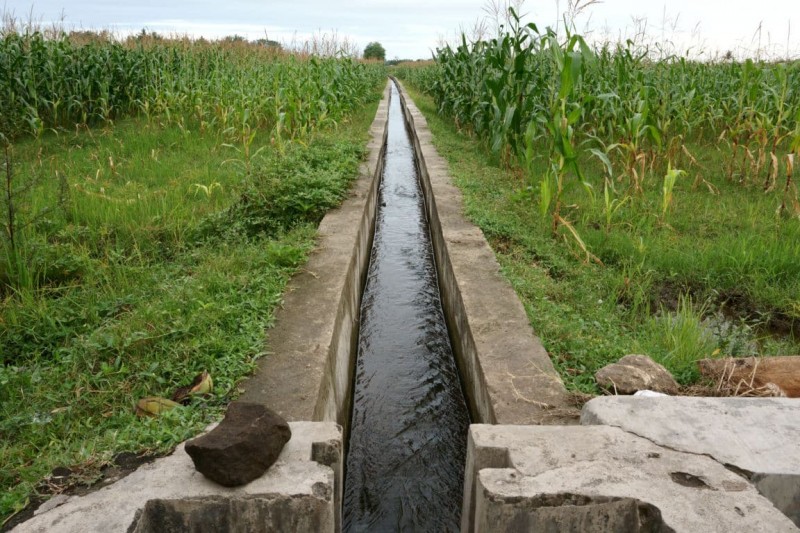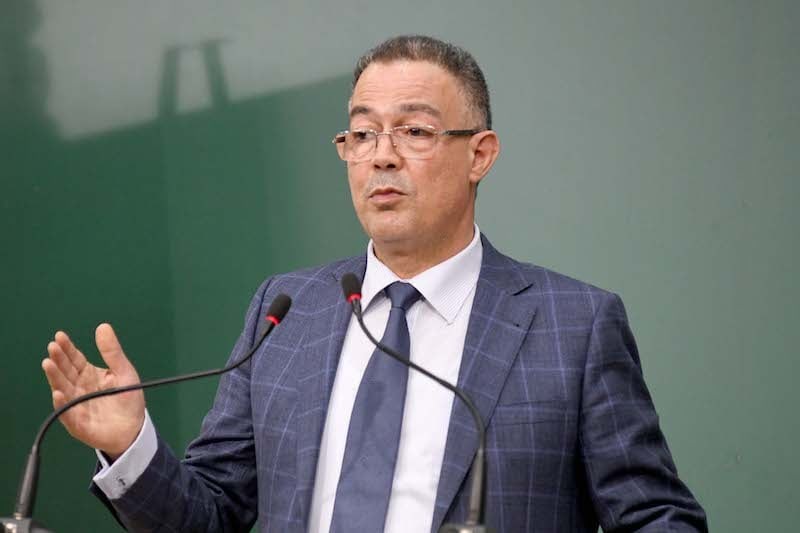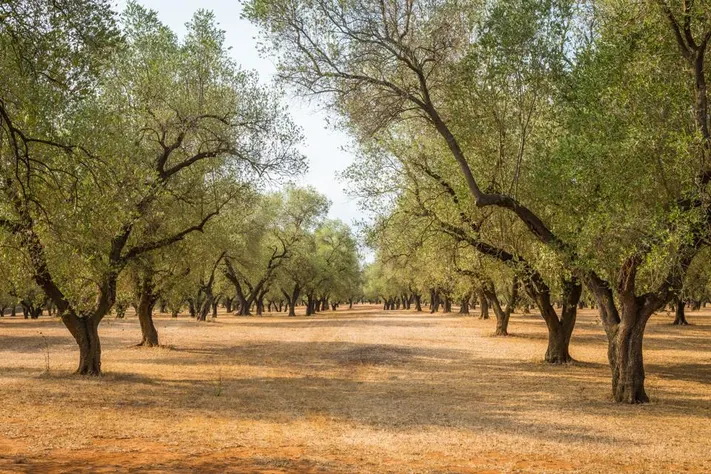Italy Hires Moroccan Mechatronics Experts as Morocco Advances Irrigation, Tax Reforms, and Olive Production Solutions
The Emilia-Romagna Regional Agency for Labor in Italy has issued a public notice inviting employers to express their interest in hiring Moroccan professionals trained in mechatronics for production units located in the Emilia-Romagna region.
This effort is part of the THAMM Plus Project, designed to enhance professional mobility by facilitating the movement of 500 workers between Morocco and Italy’s Lombardy, Veneto, and Emilia-Romagna regions. Funded by the European Union and managed by the International Organization for Migration (IOM), the project addresses labor shortages identified by Moroccan and Tunisian authorities as well as the three Italian regions. It also aims to strengthen protection mechanisms for migrant workers throughout their migration journey.

Employers wishing to participate must have been established and operational for at least one year and align with the professional profiles outlined in the notice. These profiles are tailored to meet the needs of the mechatronics sector, as identified by employer organizations.
While submitting an expression of interest is not binding, employers are under no obligation to proceed with the selection or hiring of candidates. The process for selecting candidates will be handled on a first-come, first-served basis, with applications due by December 31, 2024. Once selected, candidates will receive specialized training in Morocco tailored to the specific roles before being presented to Italian employers for potential employment.
THAMM Plus builds upon the earlier regional initiative “Towards a Holistic Approach to Labour Migration Governance and Labour Mobility in North Africa” (THAMM). This initiative aligns with global and regional policy frameworks, including the UN Sustainable Development Goals 8 and 10, the Global Compact for Safe, Orderly, and Regular Migration, and the European Union’s New Pact on Migration and Asylum.
Companies in Lombardy, Veneto, and Emilia-Romagna can leverage this opportunity to meet their labor needs with skilled professionals trained to their specifications, participate in complimentary training and exchange activities offered by IOM, and explore the economic potential of North Africa as a labor market.
Morocco to Extend Water-Saving Irrigation to 1 Million Hectares by 2030
Morocco is set to significantly expand its irrigation technology, aiming to cover one million hectares by 2030, according to Mohamed Sadiki, the Minister of Agriculture, Maritime Fisheries, Rural Development, and Water and Forests. Speaking to parliament on Tuesday, Sadiki outlined the strategic measures being implemented to enhance water efficiency and ensure the sustainability of irrigated agriculture.
Central to these initiatives are the expansion of irrigation systems downstream from existing dams, covering an additional 70,000 hectares, and the rehabilitation of small and medium hydraulic systems across 200,000 hectares. Additionally, the ministry plans to boost water supply through the construction of new dams and desalination plants, aimed at irrigating another 120,000 hectares.

Sadiki also highlighted major structural projects, including the conveyance and interconnection of water basins, which are expected to supply around one billion cubic meters of water. These efforts are designed to build a strategic water reserve of approximately 3 billion cubic meters, which is essential for achieving the country’s food sovereignty.
The minister noted that ongoing projects have already increased the total irrigated area to 1.8 million hectares and modernized irrigation systems across 175,000 hectares, with more than 80% benefiting smallholders. Furthermore, 850,000 hectares have been outfitted with drip irrigation systems. Sadiki stressed the importance of preserving fruit trees and permanent crops and emphasized the need for efficient water use in collaboration with relevant stakeholders.
The current drought in Morocco is severely impacting the country’s rain-dependent agriculture, leading to a reduction in sown areas for autumn and winter crops. Particularly, cereal cultivation has been hit hard, with land dedicated to cereals decreasing by 31% compared to typical seasons.
Morocco to Reduce Income Tax Burden
The Moroccan government plans to lower income tax rates while maintaining the continuity of social support programs, according to Fouzi Lekjaa, the Minister Delegate to the Minister of Economy and Finance responsible for the budget.
Addressing parliament on Tuesday, Lekjaa explained that currently, 78% of income tax is collected directly by the government, with the remaining amount submitted voluntarily by taxpayers. He stressed that the government’s goal is to reduce the tax burden on both public and private sector workers and to enhance overall tax efficiency.

“As agreed with our social partners, we will review the income tax laws in the forthcoming draft bill to ease the tax burden on employees,” Lekjaa stated. “This reform is designed to promote more effective self-declaration by individuals.”
Lekjaa also countered claims that Morocco has one of the highest income tax rates in the Arab world, which were supposedly as high as 38%. He clarified that the actual rate is 22%, considering exemptions granted to certain workers who do not fall into taxable income brackets.
Furthermore, Lekjaa pointed out that 80% of employees are exempt from income tax due to their income levels falling below taxable thresholds. The proposed reforms aim to broaden the tax base by focusing on higher earners, whose incomes sometimes approach those of corporations, thereby promoting tax fairness.
During the session, MP Saeed Shakir from the Social Justice Group advocated for reducing the maximum income tax rate to 30% to support the middle class and encourage savings. He also called for better regulation and taxation of the informal sector and suggested monitoring the earnings of freelancers. Additionally, Shakir proposed revisiting tax rates for large-scale farmers and landowners, who currently face minimal tax obligations.
In response, Lekjaa noted that only farmers with incomes exceeding five million dirhams are exempt from taxes, assuring that all other farmers meet their tax obligations.
Heatwaves Impact Morocco’s Olive Production
Mohamed Sadiki, Morocco’s Minister of Agriculture, announced that the country’s olive production is expected to face considerable challenges this season due to extreme heat. He pointed out that the current year’s olive yield is projected to decline due to unfavorable climatic conditions.
Addressing parliament, Minister Sadiki explained that the olive trees’ flowering period coincided with severe heat waves, which is likely to negatively affect the overall olive production. He assured industry stakeholders that he plans to organize a meeting to discuss the state of the olive supply chain and to explore possible solutions.

The issue of olive production has become a pressing concern for Morocco’s market. Kamal Ben Khaled, a member of parliament from the National Rally of Independents and head of the Federation of Canning and Agricultural Products Industries, raised alarms about the current shortage in olive production. He reported that olives are being sold for MAD 15 ($1.50) per kilogram at the farm level.
Ben Khaled warned that without government intervention, the price of olive oil could soar to MAD 150 ($15) per liter. Such a drastic increase could have severe implications for factories within the sector and potentially lead to major disruptions in the supply chain. Many olive sector companies are reportedly at risk of bankruptcy due to their reliance on international markets, where competitive pricing is a significant challenge.
Countries like Greece and Egypt, with their high levels of olive production, pose a significant threat to Morocco’s market. Additionally, Spain’s struggles with drought further exacerbate the situation.
In response to these concerns, Minister Sadiki mentioned that the Moroccan government had previously implemented measures to combat speculation in olive oil prices. These measures included restricting the export of olives and olive oil, which had helped stabilize the market.
AfDB President: King Mohammed VI’s Vision Elevates Morocco to African Powerhouse
According to Akinwumi Adesina, President of the African Development Bank Group (AfDB), Morocco is undergoing a remarkable transformation under King Mohammed VI, establishing itself as one of the most stable and advanced nations on the African continent. In a statement to MAP on the occasion of Throne Day, Adesina commended King Mohammed VI as the “architect” of modern Morocco, celebrating his 25 years of transformative leadership.

Adesina emphasized that the King’s vision and ambition have led to substantial achievements. Over the past quarter-century, Morocco has not only doubled its GDP but has also developed world-class infrastructure. Landmark projects such as the Noor Solar Power Plant—one of the largest solar installations globally—and the Tanger Med Port, a major maritime hub, are testaments to this progress.
The high-speed rail line, unique in Africa, further illustrates Morocco’s growing influence, strategic foresight, and regional strength. Adesina highlighted several key initiatives, including the expansion of the national road and highway network, the construction of new ports and airports, and improvements in rural water access. These projects have played a crucial role in stimulating economic growth and reducing regional disparities.
Moreover, Adesina stressed the importance of investing in human capital alongside infrastructure development. Significant strides have been made in advancing the educational system and vocational training. The King’s policies have supported innovative entrepreneurs across both traditional and modern sectors, fostering a culture of innovation and economic diversification.
The success of Morocco’s transformation is attributed to strategic sectoral approaches, effective structural reforms, and sound macroeconomic policies. Adesina also praised the evolving business environment, which has attracted investment and further bolstered economic growth.
